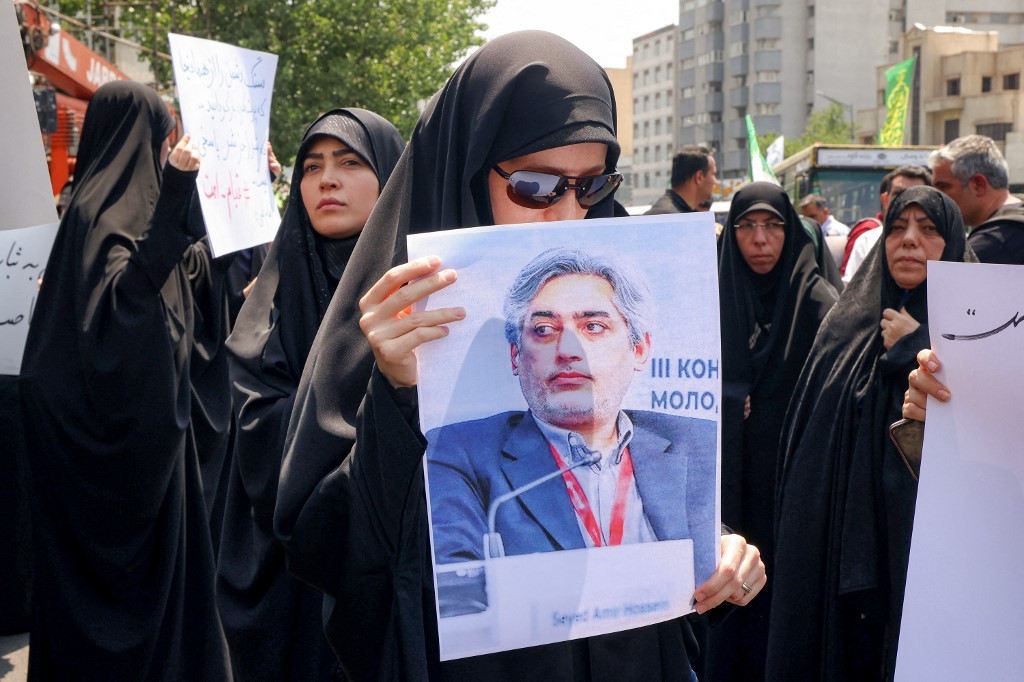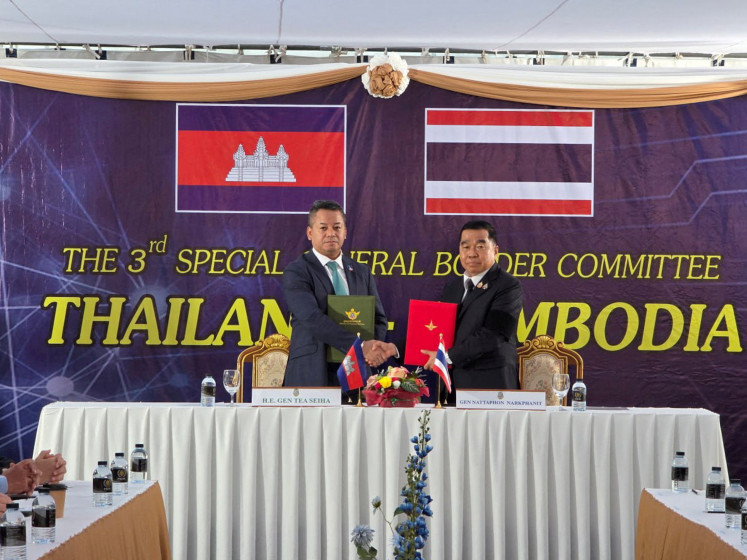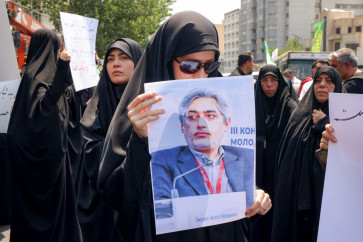Popular Reads
Top Results
Can't find what you're looking for?
View all search resultsPopular Reads
Top Results
Can't find what you're looking for?
View all search resultsWhy attack on Iran’s nuclear facilities should concern us all
Indonesia’s voice reminds us that the pursuit of peace and adherence to international norms are not just ideals, but urgent necessities for global stability.
Change text size
Gift Premium Articles
to Anyone
 Unprecedented attack: A woman holds a picture of Seyed Amir Hossein Feghhi, the slain head of Iran's Nuclear Science and Technology Research Institute, as people gather on June 13 for a protest against Israel's wave of strikes on Iran in central Tehran. Israel hit about 100 targets in Iran on June 13, including nuclear facilities and military command centers and killing senior figures including the armed forces chief and top nuclear scientists. (AFP/Atta Kenare)
Unprecedented attack: A woman holds a picture of Seyed Amir Hossein Feghhi, the slain head of Iran's Nuclear Science and Technology Research Institute, as people gather on June 13 for a protest against Israel's wave of strikes on Iran in central Tehran. Israel hit about 100 targets in Iran on June 13, including nuclear facilities and military command centers and killing senior figures including the armed forces chief and top nuclear scientists. (AFP/Atta Kenare)
M
ilitary strikes targeting Iran's nuclear facilities on June 12, 13 and 16 marked a gravely concerning development in the Middle East. In a cycle of continuous conflict, headlines tend to blur, but this incident warrants special attention due to the immediate threat to life as well as the implications for international peace, legal standards, the future of nuclear disarmament and most importantly, human lives.
The attack, carried out by Israel, targeted nuclear facilities in Fordow and Natanz, both of which have been under the monitoring of the International Atomic Energy Agency (IAEA). These facilities are meant for peaceful uses, safeguarded and subject to inspection.
Their targeting is therefore not just a military action. It is a dangerous breach of international law, including the United Nations Charter, the IAEA Statute, and norms governing the peaceful use of nuclear energy.
While the justification provided focused on concerns about Iran’s nuclear program, such a precedent, military strikes on verified civilian nuclear sites, sets a perilous standard. What would happen if similar measures were implemented in other places? Is the nuclear infrastructure of any state really safe?
Indonesia, like many other countries, has spoken out strongly against the situation. The Conference on Disarmament (CD), a multilateral forum in Geneva that works on negotiating disarmament treaties, discussed this issue immediately. The consensus among many states, particularly from developing countries, was clear: This attack undermines global non-proliferation norms, threatens regional stability and raises the specter of radiological disaster.
It is easy to forget that nuclear facilities are not just political assets, they are complex and sensitive installations. Any harm, whether deliberate or not, could result in radioactive contamination with global repercussions. Its consequences might extend well beyond the immediate area, endangering ecosystems and human lives.
More broadly, this incident places immense pressure on the integrity of the IAEA. The Agency plays a critical role in ensuring the safety and peace of nuclear programs. Despite certain limitations, a system that has contributed to maintaining a degree of global trust and stability for decades is weakened when its authority is undermined, particularly by attacking sites under its safeguards.


















